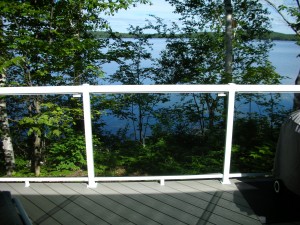 Written on May 17, 2013 – 7:45 am | by Corina Weigl
Written on May 17, 2013 – 7:45 am | by Corina Weigl
So it’s officially here – the first long weekend of the season; the start of the cottage season. What does this mean? It’s the right time to start thinking about some of the considerations related to dealing with the family cottage.
In this blog I want to chat about the income tax considerations that should be thought about when planning for the cottage.
Unlike in other jurisdictions, like the United States, in Canada we don’t have a gift or estate tax regime; we have an income tax regime. This, however, doesn’t mean we aren’t taxed on transfers structured as a gift or when we die – we are.
A gift is treated as a disposition for income tax purposes. This means that if the value of the cottage is more than what you paid for it, together with the cost of capital costs you can prove you paid for, you will realize a capital gain, fifty percent of which will be included in your income. If your cottage qualifies as your “principal residence” you may be able to shelter the capital gain with a special exemption for principal residences. You will, however, want to be sure you want to use the exemption for your cottage because once you use it up for one property, you don’t get to use it again.
You might think you’d like to get some money from one of your children but you don’t want them to have to pay full value. Think again before giving one of your kids the benefit of buying the cottage at a discount. The problem here is you will still be taxed as if you received full value for the cottage. Unfortunately the starting value for the child you sell to will be what they paid you. This means double taxes will, at some point in the future, be paid.
For example, if your cost was a hundred thousand and the value was three hundred thousand but you sell for a hundred fifty thousand, you will be taxed as if you received three hundred thousand. Unfortunately the starting cost for your child will only be one hundred and fifty thousand which means when they later sell for, say three hundred thousand, they will be taxed on the same capital gain over their cost of one hundred and fifty thousand.
The point here is – sometimes a gift horse gives back…to CRA.
You also need to think about the taxes that will arise when you die. In particular, when you die you are deemed to sell the family cottage. Again, if the value is higher than what you paid plus your capital costs, income taxes will be owing. If the cottage is to left to one child, you need to think about (i) who should pay the tax liability – your estate or the child, (ii) if your estate, is there the liquidity and who ultimately bears the tax liability as a beneficiary of your estate – the child who gets the cottage or other beneficiaries of your estate.
So as you make your way north this weekend and start to fire-up the BBQ for that first rack of ribs, I hope the foregoing gives you some food for thought. Happy start to the cottage season.
Corina Weigl
Email: cweigl@fasken.com Site: http://www.fasken.com
About: Corina Weigl and Laura West are partners in the Trusts, Wills, Estates and Charities group of Fasken Martineau DuMoulin LLP, a leading international law firm with over 650 lawyers and 9 offices worldwide that offers comprehensive estate planning, estate administration, personal tax planning, charitable giving and estate litigation services.
This article was posted in “All About Estates” www.allaboutestates.ca